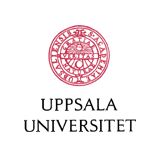|
Robust Linear Precoder for Coordinated Multipoint
Joint Transmission Under Limited Backhaul
With Imperfect Channel State Information.
Rikke Apelfröjd
and
Mikael Sternad
,
Uppsala University.
IEEE Eleventh International Symposium on Wireless
Communication Systems,
Barcelona, August 26-29, 2014,
© 2014 IEEE
Paper In Pdf
-
Abstract:
-
Coordinated Multipoint (CoMP) transmission provides
high theoretic gains in spectral efficiency, in particular
with coherent linear Joint Transmission (JT) to multiple users.
However, this requires high backhaul capacity. If the backhaul
requirement cannot be met by the system, then CoMP gains
decrease as the linear precoder matrix must be adjusted to
include zeros.
To minimize the loss of CoMP gains, all elements
in the precoder should be adjusted as zeros are added to the
precoder. We here propose a low complexity method for adjusting
a precoder matrix when some elements are required to be
zero, with respect to a robust MSE criterion. This is done by
introducing penalties on specific precoder matrix elements. This
generalized MSE criterion can then be used as a low complexity
tool for optimizing e.g. with respect to sum-rate.
Results show
that this does indeed provide a better solution than if zeros are
added separately. It is especially beneficial for cell edge users,
i.e. for the same users that can gain the most from JT CoMP.
-
Related publications:
-
PhD Thesis by Rikke Apelfröjd, April 2018
(of which this is the third contribution paper).
-
EURASIP JWCN paper 2014 that evaluates on measured channels,
without backhaul constraints,
and improves performance by using a very simple and
appropriate user grouping strategy.
-
User-centric pre-selection and scheduling for CoMP.
(IEEE ISWCS 2014).
-
Performance Evaluation of Coordinated Multi-Point Transmission
Schemes with Predicted CSI (IEEE PIMRC 2012).
-
Report by Rikke Apelfröjd
on Kalman prediction for multipoint OFDM downlink channels, May 2014.
|
Main
entry in list of publications
|
4G and 5G wireless research
|
This material is posted here with permission of the IEEE.
Such permission of the IEEE does not in any
way imply IEEE endorsement of any of Uppsala University's
products or services.
Internal or personal use of this material is permitted.
However, permission to reprint/republish this material for
advertising or promotional purposes or for creating new collective
works for resale or redistribution must be obtained
from the IEEE by writing to [email protected].
By choosing to view this document, you agree to all
provisions of the copyright laws protecting it.
|

